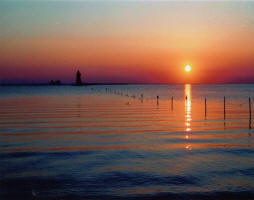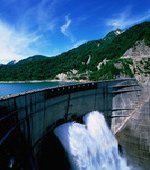 UNESCO-IHE Training: Applied Groundwater Modelling
UNESCO-IHE Training: Applied Groundwater Modelling
The short course is designed to provide participants with principles and procedures of groundwater modelling and the use of computer models for groundwater resources management and protection.
The experiences of modelling will be obtained through a series of hands-on training in computer workshops. On completion of this course the participants are able to construct a groundwater model and use the model to simulate groundwater flow, contaminant transport and saltwater intrusion.
Learning objectives
Upon completion of the course, the participants should:
- know how to create a groundwater model following the procedures of building a groundwater model: definition of model objectives, construction of hydrogeological conceptual models, design of numerical models, preparation of model inputs, model calibration and model application;
- be familiar with the most popular groundwater model codes: MODFLOW, PMPATH, MT3D and a graphical user interface PMWIN;
- be able to apply groundwater models for evaluation of groundwater development scenarios, determination of capture zone of well fields and prediction of pollutant plume development.
Target group
Postgraduates and professionals in hydrogeology and water resources management, civil engineers, environmental engineers, geologists and hydrologists who are engaged in investigation, management, and protection of groundwater resources.
Course content
The course consists of the following topics:
Groundwater flow modelling:
- Purpose of groundwater modelling
- Conceptual model: conceptualisation of aquifer-aquitard systems; specification of boundary conditions; hydrological stresses
- Design of numerical model: finite-difference solutions of flow problems; steady versus unsteady model; one layer versus multi-layer model; lay-out of grids; stress period/time steps
- Model inputs: initial conditions; boundary conditions; hydrogeological parameters; hydrological stresses
- Model calibration and validation: selection of model code; calibration procedures
- Model prediction: purpose of prediction; simulation of scenarios; determination of capture zones
- Introduction to PMWIN
- Introduction to MODFLOW
- Exercises and case study
Contaminant transport modelling:
- Contaminant transport processes and mechanisms: advective transport; dispersion; diffusion; sorption; degradation
- Contaminant transport models: mass fluxes; mass balance equations; initial conditions; boundary conditions
- Analytical solutions: 1D advective-dispersion-sorption-degradation
- Numerical solutions: Finite difference; method of Characteristics
- Applied modelling of contaminant transport: problem definition; purpose of modelling; conceptual model; selection of model code; design of numerical model; model calibration; sensitivity analysis; model application
- Introduction to PMPATH
- Introduction to MT3D
- Exercises and case study
Saline groundwater modelling:
- Salt water intrusion in coastal aquifers
- Density dependent flow equations of a fresh-saline interface: Badon Ghijben-Herzberg principle; sharp interface; transition zone
- Numerical modelling: interface models; solute transport model; benchmark problems
- Applied modelling of seawater intrusion
- Exercises and case study
Examination
It is possible to take part in the examination of this short course. If you obtain a passing mark for this examination and return to UNESCO-IHE within four years after completion of the short course to follow a full MSc programme, you will receive exemption for this short course/module. The costs for this exam are €250 extra and should be borne by yourself. Taking part in the examination is not compulsory.
| Contact information |
Email: y.zhou@unesco-ihe.org |
|---|---|
| Event type | Training |
| File link |
http://www.unesco-ihe.org/Education/Short-courses/Regular-short-courses/Applied-Groundwater-Modelling |
| Source | UNESCO-IHE, Institute for Water Education |
| Subject(s) | CHARACTERISTICAL PARAMETERS OF WATERS AND SLUDGES , DRINKING WATER , DRINKING WATER AND SANITATION : COMMON PROCESSES OF PURIFICATION AND TREATMENT , WATER DEMAND , WATER QUALITY |
| Geographical coverage | Netherlands, |
| Address | UNESCO-IHE, Institute for Water Education, Delft |
| Organizer | UNESCO-IHE, Institute for Water Education, Delft |
| Target audience | International |
| Duration | 3 weeks |
| Period | [14/06/2011 - 01/07/2011] |
| Status | Confirmed |
| Working language(s) | ENGLISH |
 you are not logged in
you are not logged in





